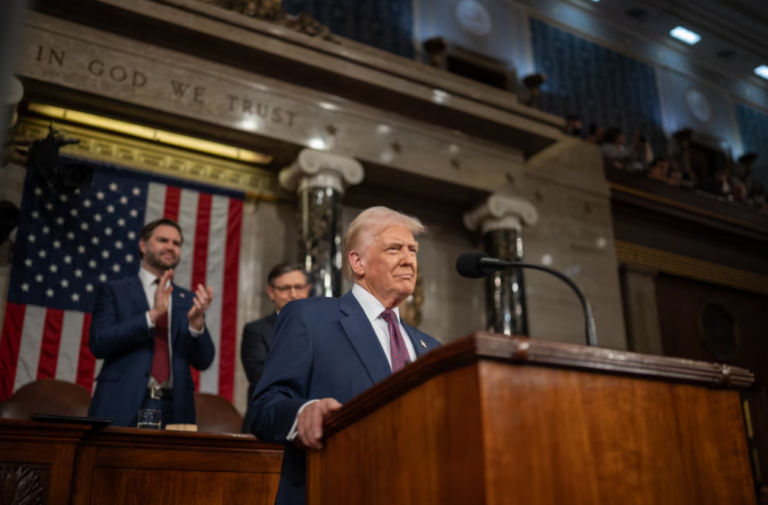The Quest for Maritime Dominance: Trump’s Executive Order and the Global Shipbuilding Industry
The recent executive order signed by U.S. President Donald Trump has sent shockwaves through the global shipping market, with a focus on restoring American maritime dominance amidst rising geopolitical tensions and the U.S.-China maritime rivalry. This move comes at a time of uncertainty for the industry, as Chinese shipyards see a decline in newbuild orders in favor of their South Korean counterparts.
Shift in Shipbuilding Orders
According to reports from Greek shipbroking services provider Intermodal, Chinese shipyards are facing a decrease in newbuilding orders while South Korean yards are experiencing a surge. Last week’s orderbook showcased this trend, with South Korean shipyards securing six new deals.
Among the notable orders placed, Taiwan’s U-Ming ordered two scrubber-fitted, 180,000 dwt bulk carriers from Qingdao Beihai Shipyard, while Swiss player Mediterranean Shipping Group (MSC) ordered two LNG dual-fuel Ro-Pax vessels from China’s Guangzhou Shipbuilding International (GSI).
Trump’s Plan to Revitalize U.S. Shipbuilding
President Trump’s executive order aims to “make shipbuilding great again” by mandating the creation of a Maritime Action Plan (MAP) to revitalize American maritime industries. The plan will outline specific actions to restore and enhance the resilience of the U.S. maritime industry, addressing issues such as government procurement processes and over-regulation.
The order also directs the Secretary of Defense to explore options to invest in and expand the Maritime Industrial Base, while the USTR is tasked with making recommendations on China’s anticompetitive actions in the shipbuilding industry. Additionally, the order instructs the Secretary of Homeland Security to enforce the collection of fees on foreign cargo entering the U.S. to prevent circumvention.
Challenges and Opposition
While the USTR’s proposal to impose fees on Chinese-built vessels entering U.S. ports aims to counter China’s dominance in maritime, it has faced criticism from industry stakeholders. The World Shipping Council (WSC) has raised concerns about the economic impact of the proposed fees, warning of potential inflation for consumers and businesses, job losses, and harm to U.S.-based exporters.
Despite these challenges, President Trump remains committed to revitalizing U.S. shipbuilding, with plans to establish an Office of Shipbuilding and introduce tax incentives for shipyards. The global shipping market continues to evolve, with the U.S.-China maritime rivalry and geopolitical tensions shaping the industry’s future.

